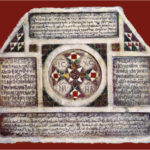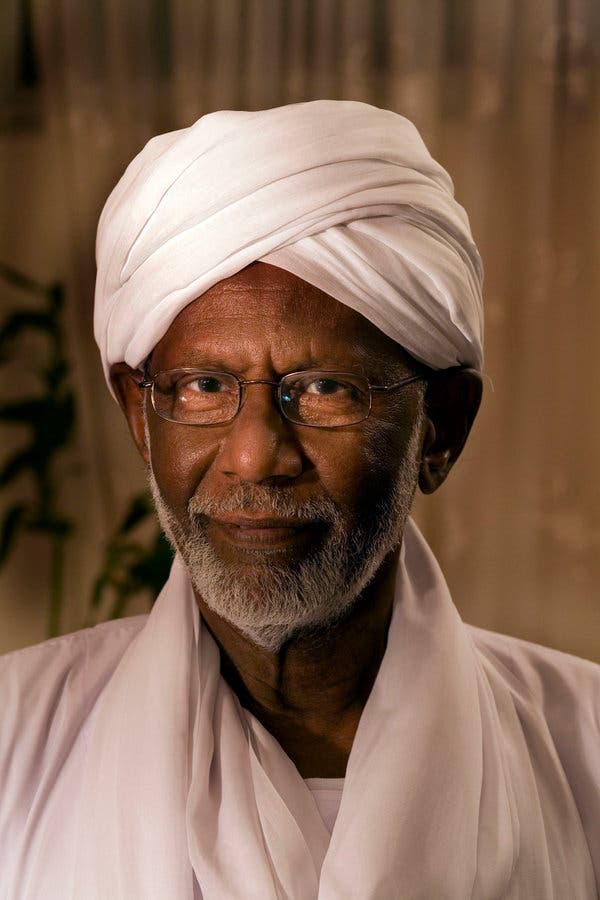
How is one to reconcile the concept of a revelation 'for all times and all places' with the historicity of the Text imposed by the conclusions of religious phenomenology?
THIS RECONCILIATION can be carried out by situating the revelation process within the history that the revelation process practiced on itself. It is no use for us to be more royalist than the king.
The Qur’ān has abrogated hundreds of verses that had become obsolete, that is, they had lost any validity in applying them to new realities on the ground, and it simply replaced them the verses with ‘one better or the like thereof’. After the death of the Prophet of Islam, Abu Bakr, ‘Umar, ‘Ali and Maʽādh abrogated some verses, just as the jurists abrogated other verses and hadiths, especially Abu Aḥmad Al-WansharIsI and the two faqihs Al-Ṭāhir al-Ḥaddād and Ḥasan ‘Abdullah al-Turābī, to take some examples.
The verses that were abrogated by the Qur’ān were time-sensitive verses, that is, those linked to changeable worldly affairs. There is only one exception to this, the abrogation of the direction of prayer to Jerusalem following the failure of the “Al-Sahifa” experiment in which Muhammad attempted to integrate the Jews into his “Nation of the Believers”, and its substitution with the direction of the prayer to the Kaʽba.
Some do not accept that abrogation takes place in the Qur’ānic text, interpreting these passages as varying in their ‘generalised’ or ‘specific’ application
Some acts of worship, however ,such as the Hajj and fasting, have to be reformed. For drinking a glass of water every half hour is a medical requirement for the health of the kidneys and the prostate and digestive systems. How can one abstain from drinking even one drop of water throughout the day, especially in the summer? Religious reform also aims to cleanse Islam of religiously legitimated violence, whether this be ḥudūd penalties[1], jihād, or the depriving of women and non-Muslims of their full citizenship rights.
It should also cleanse Islam of violence against the self, that is, self-punishment as an expression of moral masochism, the overwhelming feeling of guilt that has no objective justification. Just as with some of the rituals of the pilgrimage, such as the stoning of the jimār pillars, which every season results in the massacre of those trampled under the feet of pilgrims eager to stone the demons chained before them. This is a stark expression of this neurotic feeling of guilt that is being vented against the chained demons.
The venting of pent-up feelings is healthy thing, but the price today is too high. It is also necessary to reconsider some medically unjustified food taboos and abolish brutal customs such as female and male circumcision, which the comparative history of religions teaches us is a Pharaonic ritual. The Companions were not circumcised after their conversion to Islam, and Muḥammad was not born circumcised, as legend claims. As to how to dispense with these Pharaonic customs, one must first ban it by law and secondly employ the media and pedagogical institutions to re-educate the collective awareness of the values of human civilization, of repudiating violence against oneself and against the Other.
Religious reform aims to cleanse Islam of religiously legitimated violence
There are some, however, who do not accept that abrogation takes place in the Qur’ānic text, instead interpreting these passages as varying in their ‘generalised’ or ‘specific’ application. This denial of the abrogation was a very late phenomenon, and the result of religious polemics with the Jews and Christians, who expressed their surprise that the All-Knowing God could change his opinion from one moment to another. This embarrassed the Muslim jurists and theologians, and so they resorted to a form of delirium – the denial of reality, by denying the existence of abrogation against the evidence of the Qur’ān itself:
“Nothing of our revelation (even a single verse) do we abrogate or cause be forgotten, but we bring (in place) one better or the like thereof. [2]
The Qur’an abrogated itself for two reasons, either because the situation changed after the abrogated verse was revealed, or at the request of the Companions. Al-Bukhari has this to say:
“The Qur’an was revealed at the request of the Companions. It was also added and copied at their request. An example of this is verse 65 of Sūrat Al-Anfāl: “If there are twenty patient among you, they will defeat two hundred, and if there are one hundred of you, they will defeat a thousand of those who disbelieve…”
The commentators tell us that the Muslims considered this verse to be exaggerated and demanded that the Prophet abrogate it. So it was immediately abrogated by the following verse:
“Now God has made it easy for you, and He knows that there is weakness among you. If there are a hundred patient women among you, they will overcome two hundred, and if there are a thousand among you, they will overcome two thousand…” (Al-Anfāl, 66).
Thus, the balance of power established by verse 65 – a Muslim fighter against ten polytheistic fighters – was abrogated by a new, more realistic balance of power by the new verse – one fighter against two. This is the historical reading of the text that educational institutions should present to our future generations, so that they can absorb how the Revelation was revealed in history, as Abū Bakr did when he abrogated the truth of “those whose hearts are to be reconciled”[3] and as ‘Umar, ‘Alī, and Muʽādh did when they abrogated the verse of fa’y. Similarly, the jurists abrogated verse 282 of Sūrat al-Baqara:
“O ye who believe! When ye contract a debt for a fixed term, record it in writing.”

Suggested Reading
The jurist al-Wansharīsī (15th century) also abrogated the hadith prohibiting zakāh on the Āl al-Bayt. Shaykh al-Ṭāhir Al-Ḥaddād also abrogated polygamy and inequality in inheritance between males and females in his book “Our Woman in the Sharīʻa and in Society” (1930). In 2006 Shaykh Ḥasan al-Turābī abrogated the inequality in testimony and inheritance between the male and female, and also the verse “At the farthest lote-tree”[4] which he said did not exist, and in 2009 he abrogated the verse that forbids a Muslim woman to marry a non-Muslim man, recognizing the right of a Muslim woman to marry a Jew, a Christian, or a Sudanese pagan.
As for the question of ‘enjoining good and forbidding evil’, that is, that every Muslim is to be responsible for the soundness of any other Muslim’s faith, this is an example of the dissolving of the individual into the group.
A collective practice that dissolves the individual into a whole that transcends him, such as the tribe or the nation, is intended to deprive him of a space of his own to practice spiritual contemplation or choose the rituals that suit him, as opposed to those imposed on him by other in the group. This is in much the same way as in a football match, which symbolizes the spirit of the herd and the competition between two teams or two nations – where primitive tribal passions explode between the supporters of the two competing teams. These primitive reflexes, however, are not seen in tennis or boxing. That is because the competition is not between two tribes, but between two individuals.
The assimilation of the individual into the nation is a continuation of the traditions of the tribe in the era of the Jāhiliyya,
In Saudi Arabia, for example, the religious militia spies on people everywhere to beat them if they catch them red handed committing “heresy”. Despite the futility of this repression, which has only alienated Saudi youth from their religious obligations and even at times from the religion itself, they insist on it with a neurotic stubbornness. The assimilation of the individual into the nation is a continuation of the traditions of the tribe in the era of the Jāhiliyya, when the freedom of every member of the tribe was confiscated in favour of the tribal spirit of the herd, in favour of assimilating the individual into the tribe so as to die for it in its petty wars, such as exacting revenge even for the rustling of a camel.
I have been insisting for years on the need to foster individual independence and avoid the assimilation of the individual into the nation, which I consider a recipe for terrorism. The principal measure for achieving this is to reform Islam. Doing this leads on to the rest of the measures such as encouraging the birth of the individual, and of individual religiosity and the restriction of religion to the private sphere – in conformity to the noble verse:
“O ye who believe! Ye have charge of your own souls. He who erreth cannot injure you if ye are rightly guided. Unto Allah ye will all return; and then He will inform you of what ye used to do.” (Qur’ān V (al-Mā’ida) 105.
We should encourage the free intermingling of the genders in schools, clubs, cinemas, public transport and in all aspects of social life. We should encourage couples to get acquainted before marriage and encourage free relations, forbid forced marriage and child marriage, introduce sex education in all schools right from the preparatory school stage, impose birth control and the right to abortion in recognition of women’s freedom to dispose of their bodies as they will, and defuse the population explosion time-bomb and stop accusing millions of single women as being sinful. Only in primitive or primitive-minded peoples like ours, is a celibate or barren woman considered a bad omen. We should encourage individual self-determination in one’s daily life. In short, starting from kindergarten, we should to encourage the appearance of the individual who has ownership of his own head and her own vagina, disposing of them freely within the framework of rational positive law.

Suggested Reading
These necessary measures will help prevent the dissolution of the individual into the nation, a practiced promoted today by the school of religious absurdity, for the purpose of achieving the goals of the Islamic extreme right, which specifically aims to assimilate the individual into the nation, recruit him and transform him into a mere number, an anonymous member of the nation’s herd which gives some meaning to his meaningless life. He thereby submits to sacrificing himself and committing suicide for this herd, and blindly obeys its spokespersons of the Islamic far right.
[1] See Glossary, under Ḥadd.
[2] Qur’ān II (al-Baqara), 106: مَا نَنْسَخْ مِنْ آيَةٍ أَوْ نُنْسِهَا نَأْتِ بِخَيْرٍ مِنْهَا أَوْ مِثْلِهَا أَلَمْ تَعْلَمْ أَنَّ اللَّهَ عَلَىٰ كُلِّ شَيْءٍ قَدِيرٌ “Nothing of our revelation (even a single verse) do we abrogate or cause be forgotten, but we bring (in place) one better or the like thereof. Knowest thou not that Allah is Able to do all things?”
[3] Qur’ān (al-Tawba) 60: إِنَّمَا الصَّدَقَاتُ لِلْفُقَرَاءِ وَالْمَسَاكِينِ وَالْعَامِلِينَ عَلَيْهَا وَالْمُؤَلَّفَةِ قُلُوبُهُمْ وَفِي الرِّقَابِ وَالْغَارِمِينَ وَفِي سَبِيلِ اللَّهِ وَابْنِ السَّبِيلِ فَرِيضَةً مِنَ اللَّهِ وَاللَّهُ عَلِيمٌ حَكِيمٌ “The alms are only for the poor and the needy, and those who collect them, and those whose hearts are to be reconciled, and to free the captives and the debtors, and for the cause of Allah, and (for) the wayfarer; a duty imposed by Allah. Allah is Knower, Wise”.
[4] Qur’ān LIII (al-Najm) 13-15: “And verily he saw him yet another time, at the farthest lote-tree; nigh unto which is the Garden of Abode.”

